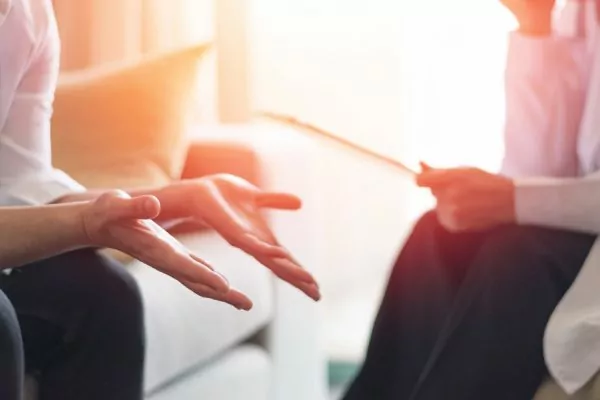Everybody knows that a good night’s sleep is vital to our wellbeing, and that not getting enough kip can badly affect our mental and physical health. Doctors recommend that we all get seven hours a night, but for many this is easier said than done. Nearly everyone experiences bouts of sleeplessness from time to time, and this happens to the average person once a year.
According to statistics one in three people in the UK suffer from insomnia, and around 6% of us have chronic insomnia, which is defined as having lasted for at least a month and not being caused by another illness or medication or a substance. Recent studies have shown that around 40% of people with chronic insomnia also have depression. The link is so common that many GPs will automatically discuss low mood with patients who come for help with insomnia, because bouts of insomnia so frequently precede the onset of depression or other mental health problems.
The reasons for insomnia can be complicated. That is to say, it might not just be down to a single cause, but be the result of a range of things such as stress, diet, physical wellbeing, and your surroundings. However, if you did have to pick one thing that causes insomnia to strike it would be defined as being over-stimulated during the day and this over-arousal continuing into the night.
The first thing, then, when trying to work out how to tackle your insomnia is to think about what could be causing it: are there things going on in your life that have significantly increased your stress levels? How are your blood sugar levels? Do you have lower back pain or any nagging health issues that affect your ability to get to sleep or disturb your slumbers? Are there draughts, lights or sounds that enter your sleeping space and undo the calm and restfulness? etc?
Once you have worked that out here are some tips to help you get to sleep.
Our Tips
Rethink sleep Sleep is more like a dimmer than an on-off- switch. So instead of getting into bed lying down and expecting sleep to come, treat the hour before you go to bed as a winding down time in which you de-stress and settle yourself in readiness for sleep. Have a warm shower or bath, dim the lights, have a hot non-caffeinated drink and watch, read or listen to something relaxing.
Be flexible Doctors do recommend seven hours a night, but perhaps you personally need less, and maybe you don’t need to have it all at once. In other cultures (and in our culture in centuries gone by) people don’t expect a solid, continuous night’s sleep they were programmed to sleep sporadically. So it’s possible that, for you, having three or four hours of sleep, followed by a couple of hours awake, and then a couple more hours asleep is fine. Be open-minded about the numbers and there will be a whole lot less pressure on you at bedtime.
Be passive Trying to get to sleep is a Catch 22 situation because sleep is not active it is passive. The more you try to get to sleep the more elusive it becomes so instead think about getting yourself ready for sleep to come in rather than actively pursuing it.
Sleep diary Keeping track of your sleep can help you work our what is stopping you from falling asleep. Note what time you go to bed, what time you get up, how much sleep you had, how long you lay awake, and what was going on with you at those times — what did you feel in your body? What was running through your mind? What were your emotions?
Tech-free zone Experts recommend 30-60 minutes of tech-free time before you go to bed each night. Not only do devices over-stimulate you, but research has shown that the blue light emitted by your phone, tablet or computer can interfere with the release of melatonin (the sleep hormone).
Get Into a Routine Sleep experts agree that having a night-time routine that you always follow really helps. So even if you had a bad night’s sleep, don’t go to bed earlier to try to catch up, stick to your routine and the sleep will follow.
Cut out stimulants This is a bit of a no-brainer but don’t have alcohol or caffeine at least an hour before bedtime, it is also a good idea not to eat too close to bedtime.
Practice relaxation Use relaxation techniques such as progressive relaxation, deep breathing, or mindfulness exercises. For example notice how the sheets feel on your skin, become aware of the air coming in and out of your body as you breath and if your mind returns to worrying about sleep bring yourself back to your physical sensation in the here and now. One you stop striving and struggling to sleep your body can naturally move into sleep.
Try therapy Talk therapies are very effective with persistent bouts of insomnia and the depression that might follow them.
If you are experiencing insomnia, we have experienced psychotherapists and counsellors who will be able to help, call 020 8673 4545 or email [email protected] and the Front of House team will book an appointment with one of our therapists. We have centres in Clapham and Tooting and no waiting list.







